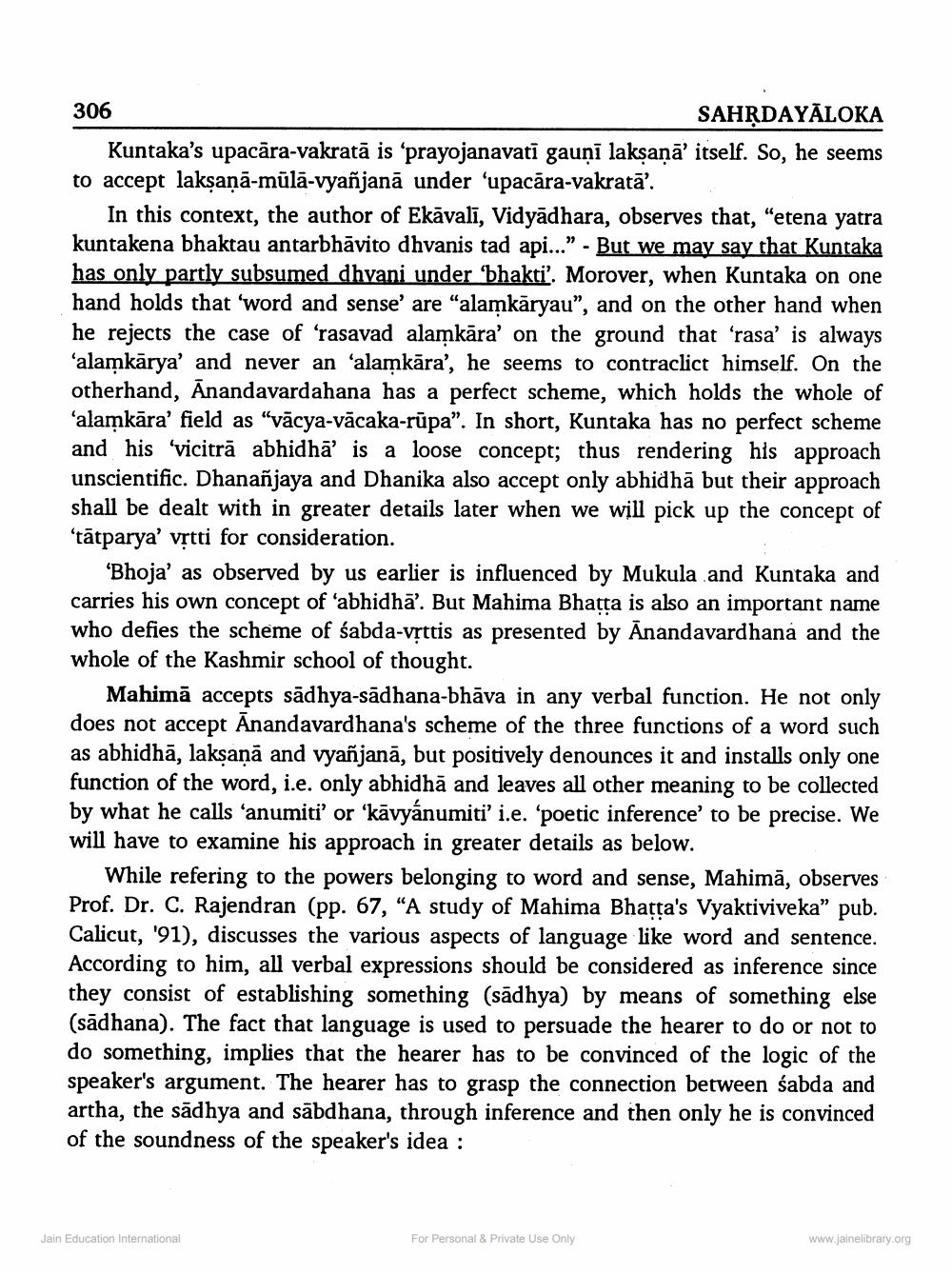________________
306
SAHRDAYĀLOKA
Kuntaka's upacara-vakratā is 'prayojanavati gauni laksanā' itself. So, he seems to accept lakṣaņā-mūlā-vyañjanā under 'upacāra-vakratā’.
In this context, the author of Ekāvalī, Vidyadhara, observes that, "etena yatra kuntakena bhaktau antarbhāvito dhvanis tad api..." - But we may say that Kuntaka has only partly subsumed dhvani under bhakti'. Morover, when Kuntaka on one hand holds that 'word and sense' are "alamkāryau", and on the other hand when he rejects the case of 'rasavad alamkāra' on the ground that 'rasa' is always ‘alamkārya' and never an ‘alamkāra', he seems to contraclict himself. On the otherhand, Anandavardahana has a perfect scheme, which holds the whole of 'alamkāra' field as "vācya-vācaka-rūpa". In short, Kuntaka has no perfect scheme and his 'vicitrā abhidhā' is a loose concept; thus rendering his approach unscientific. Dhananjaya and Dhanika also accept only abhidhā but their approach shall be dealt with in greater details later when we will pick up the concept of ‘tātparya' vștti for consideration.
'Bhoja' as observed by us earlier is influenced by Mukula and Kuntaka and carries his own concept of 'abhidhā'. But Mahima Bhatta is also an important name who defies the scheme of sabda-vrttis as presented by Anandavardhana and the whole of the Kashmir school of thought.
Mahimā accepts sādhya-sādhana-bhāva in any verbal function. He not only does not accept Anandavardhana's scheme of the three functions of a word such as abhidhā, laksaņā and vyañjanā, but positively denounces it and installs only one function of the word, i.e. only abhidhā and leaves all other meaning to be collected by what he calls 'anumiti' or ‘kāvyánumiti' i.e. 'poetic inference to be precise. We will have to examine his approach in greater details as below.
While refering to the powers belonging to word and sense, Mahimā, observes Prof. Dr. C. Rajendran (pp. 67, “A study of Mahima Bhatta's Vyaktiviveka” pub. Calicut, '91), discusses the various aspects of language like word and sentence. According to him, all verbal expressions should be considered as inference since they consist of establishing something (sādhya) by means of something else (sādhana). The fact that language is used to persuade the hearer to do or not to do something, implies that the hearer has to be convinced of the logic of the speaker's argument. The hearer has to grasp the connection between sabda and artha, the sādhya and sābdhana, through inference and then only he is convinced of the soundness of the speaker's idea :
Jain Education International
For Personal & Private Use Only
www.jainelibrary.org




